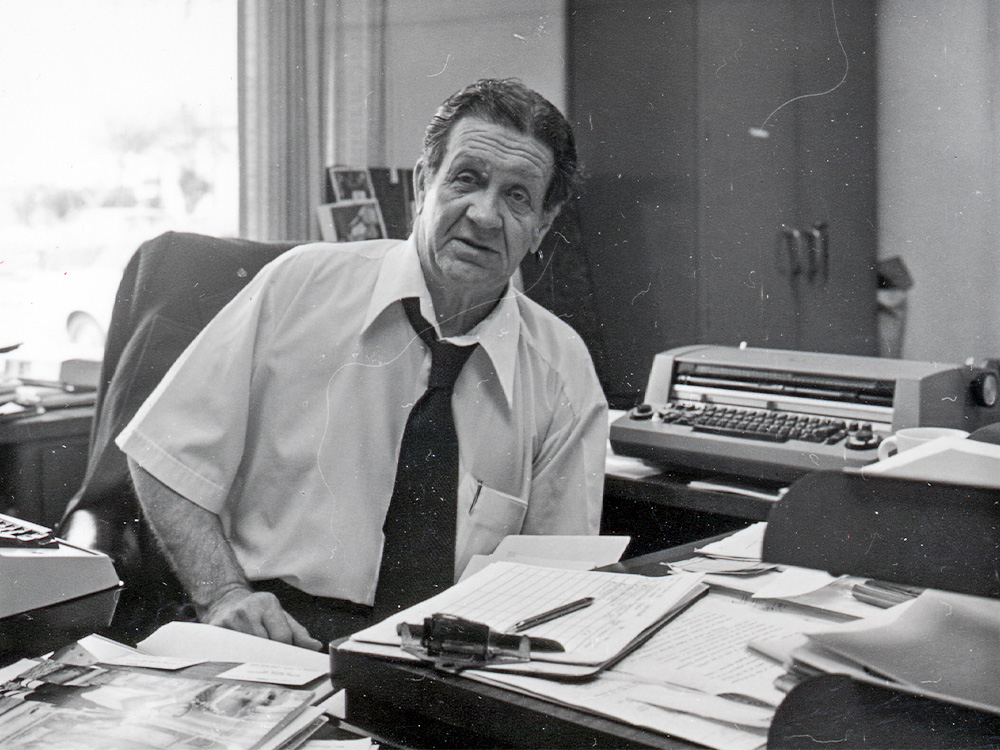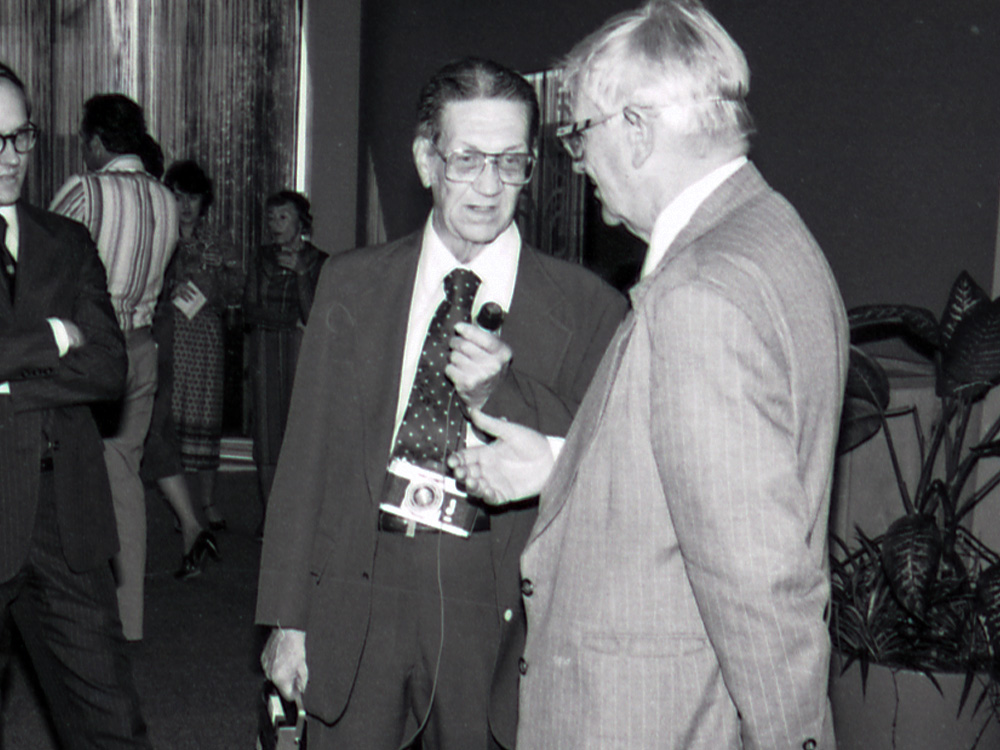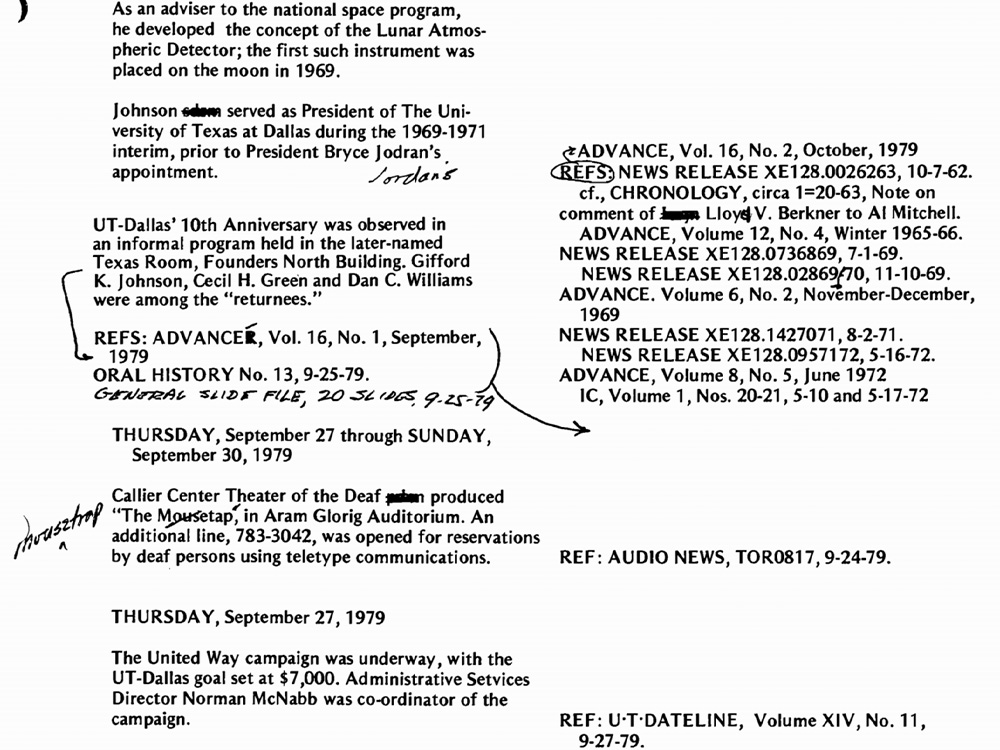Thank You, Al
02.12.2020
 Alfred T. Mitchell at his desk in Founders Building. (Photo undated.)
Alfred T. Mitchell at his desk in Founders Building. (Photo undated.)
He perches at a typewriter, searching for just the right turn of phrase. Or he is preparing to conduct an interview, tape recorder and microphone in hand. Those are representative of the grainy black-and-white photos of Alfred T. Mitchell that I’ve come across in the archives in preparation for the year-long observance of the University’s 50th anniversary.
Long before I encountered Mitchell’s image, I had already met this erstwhile chronicler through his meticulous and frequently wry accounting of the university’s early history.
He was, as author William Zinsser described, “a custodian of memory, and that’s what you must become if you want to leave some kind of record.” Let me pause here and express my gratitude for Mitchell’s commitment to being our early custodial agent.
 Alfred T. Mitchell (center) interviews Dr. Anton Hales, former head of the Department of Geosciences, during a celebration for the 10th anniversary of UT Dallas in 1979.
Alfred T. Mitchell (center) interviews Dr. Anton Hales, former head of the Department of Geosciences, during a celebration for the 10th anniversary of UT Dallas in 1979.
He wrote a chronology of events great and small that took place first at the precursor research center and later the early years of UT Dallas. It was a labor of love – hundreds of pages in his own words, commenting on board meetings, chronicling major decisions, describing routine events that ranged from hosting cultural events to the ins and outs of staffing a fledgling institution.
The photos of Al going about his duties — first as the director of public affairs for the research institution and in a similar capacity for the new UT Dallas — are a pictorial coda to his opus.
After spending many hours poring over the chronology, I have come to realize that Mitchell probably wrote the way he talked. He put himself into the chronology – with asides that are as revealing as his factual representations.
 A sliver from the opus that is Alfred T. Mitchell’s chronology of UTD’s early years.
A sliver from the opus that is Alfred T. Mitchell’s chronology of UTD’s early years.
He didn’t dodge difficult topics. He described the difficulties in communicating about the early nondegree-granting research center, including its confusing array of names and acronyms. His poignant musings about the day that John F. Kennedy was assassinated shed light on the center’s role in hosting the planned luncheon for the U.S. president’s visit to Dallas on Nov. 22, 1963.
Mitchell’s writing reveals as much about him as it does about the University’s history.
His stories have put the heart and soul into those early years.
Thank you, Al. I’m so glad I met you.
–Teri Brooks



